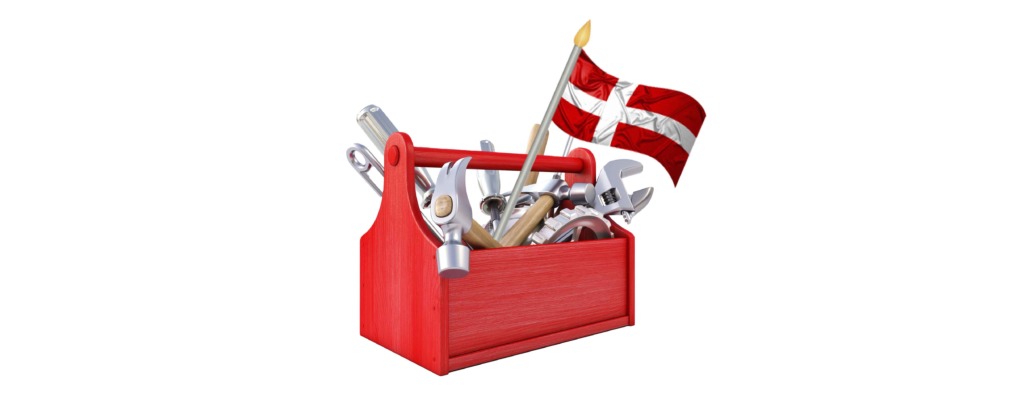The Danish work environment
A toolbox for success
The Danish work environment can be exciting and fun. The salaries are generous (although take-home pay is less after the ambitious Danish taxes), working hours are reasonable, and employers generally put a premium on creating a pleasant, healthy workplace.
That said, the Danish work environment is different than in many other European countries, including other Scandinavian countries. Here are a few of the tools you’ll need to be successful when working in Denmark.
Danish openness and trust
The first tool is a commitment to openness and trust. Trust is taken for granted in Danish society and the Danish workplace; when you are hired, it is because an employer has decided to trust you.
You may be surprised how little your employer monitors your work. Don’t take this for granted or as an excuse to slack off. You are being trusted to do the best you can with the assignment that you have been given.
Being seen as unworthy as trust – utroværdig – is about the worst thing you can be in Denmark, and since this is a little culture where you will run into the same people again and again, it’s important not to break that trust.
One obvious example: don’t call in sick to work unless you’re really sick. If you need a day off because friends are coming to town or your dog needs to go to the vet, take a “personal day” instead.
Initiative and being a self-starter
The second is a great deal of initiative. Working in Denmark doesn’t mean having a boss who tells you want to do, doing that, and then waiting for the boss to tell you what to do next. Instead, your boss will give you an area to cover or a problem to solve, and expect you to use your smarts and expertise to make it happen.
If you need more feedback from the boss, ask for it. Danish workers don’t like micromanagement, so your Danish boss will assume you don’t want micromanagement either.
Group spirit
A third important tool is group spirit. Danes work in groups, and have done so since the age of Viking ships. In contemporary times, they begin doing group work in primary school, and this continues into their later education and into the workplace.
The lone wolf will have a hard time in Denmark, as will the person who wants all the credit for an achievement on the job. Danes rise and fall as a group, not as individuals. Be prepared to work as part of a team, and to eat lunch with the team. It also important to take a break with the team and celebrate whenever anyone brings cake to the office.
Learning the unwritten rules of Danish working culture takes time – and you’ll probably make a few mistakes along the way. As long as you’re trustworthy, reliable, and willing to learn, your Danish colleagues will be happy to help you out.










